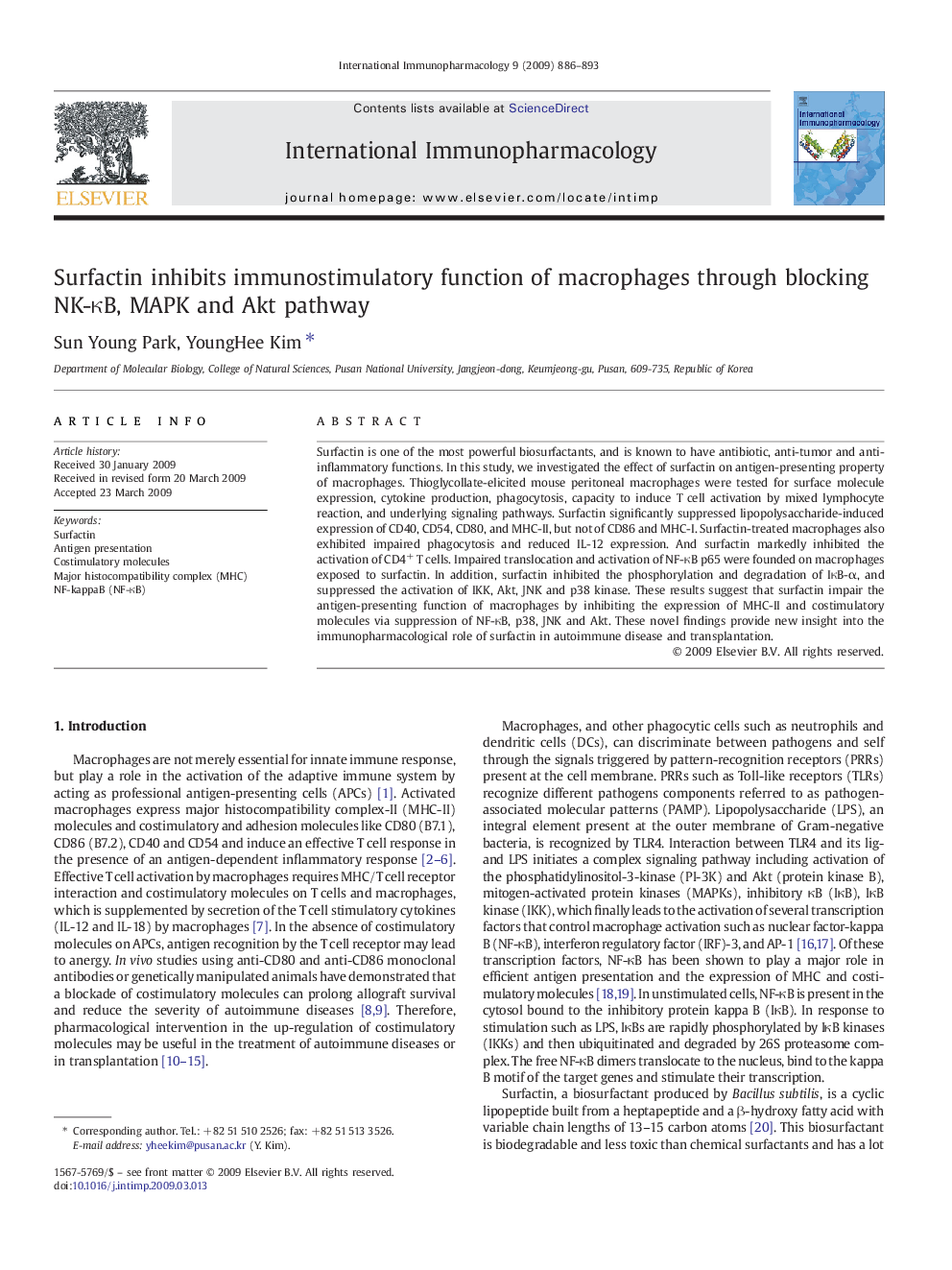| Article ID | Journal | Published Year | Pages | File Type |
|---|---|---|---|---|
| 2541891 | International Immunopharmacology | 2009 | 8 Pages |
Surfactin is one of the most powerful biosurfactants, and is known to have antibiotic, anti-tumor and anti-inflammatory functions. In this study, we investigated the effect of surfactin on antigen-presenting property of macrophages. Thioglycollate-elicited mouse peritoneal macrophages were tested for surface molecule expression, cytokine production, phagocytosis, capacity to induce T cell activation by mixed lymphocyte reaction, and underlying signaling pathways. Surfactin significantly suppressed lipopolysaccharide-induced expression of CD40, CD54, CD80, and MHC-II, but not of CD86 and MHC-I. Surfactin-treated macrophages also exhibited impaired phagocytosis and reduced IL-12 expression. And surfactin markedly inhibited the activation of CD4+ T cells. Impaired translocation and activation of NF-κB p65 were founded on macrophages exposed to surfactin. In addition, surfactin inhibited the phosphorylation and degradation of IκB-α, and suppressed the activation of IKK, Akt, JNK and p38 kinase. These results suggest that surfactin impair the antigen-presenting function of macrophages by inhibiting the expression of MHC-II and costimulatory molecules via suppression of NF-κB, p38, JNK and Akt. These novel findings provide new insight into the immunopharmacological role of surfactin in autoimmune disease and transplantation.
